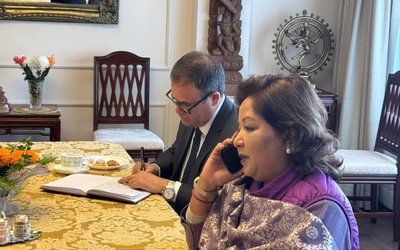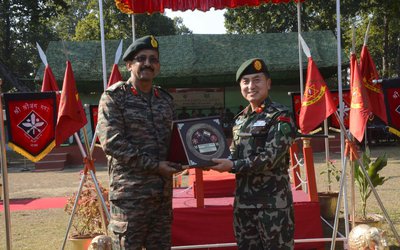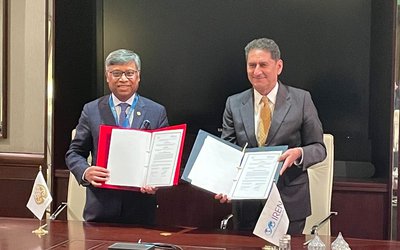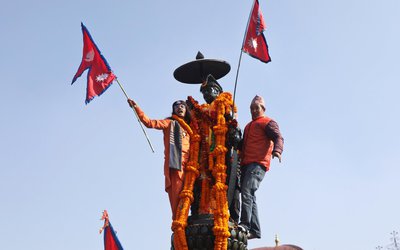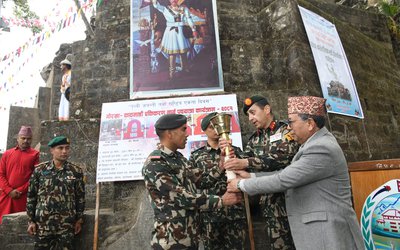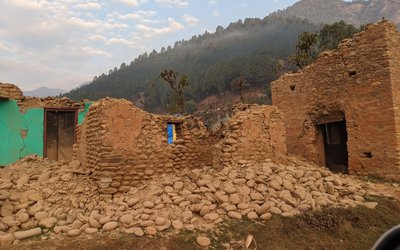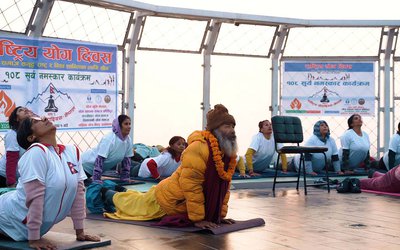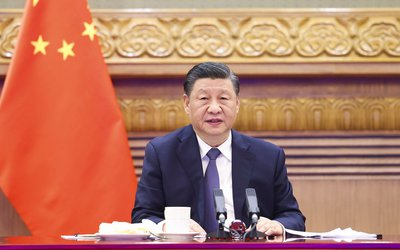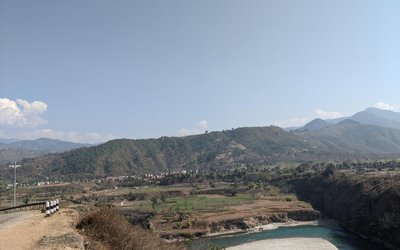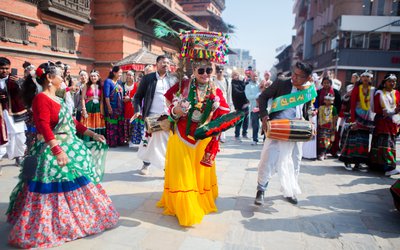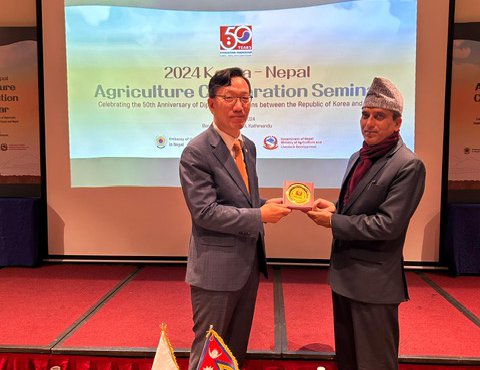
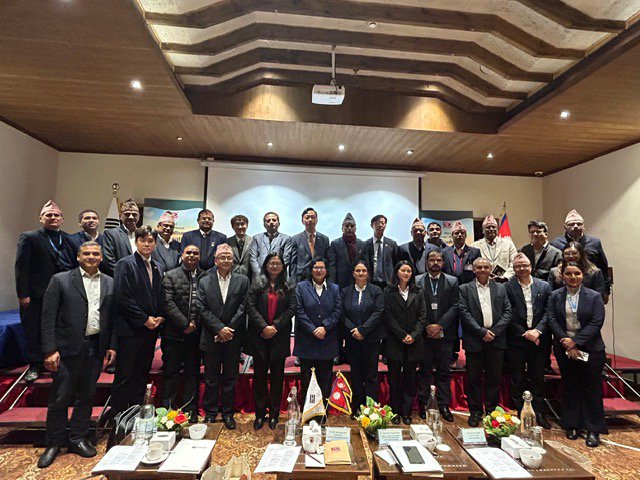
The Embassy of the Republic of Korea in Nepal organized 2024 Korea-Nepal Agriculture Cooperation Seminar in Kathmandu on 8th December, 2024 to celebrate the 50th Anniversary of Diplomatic Relations between Republic of Korea and Nepal.
Nepal and South Korea signed a bilateral memorandum of understanding (MoU) on cooperation in the agricultural sector lastyear November 2, 2023. South Korean embassy said the memorandum of understanding is aimed at advancing cooperation between the two countries in the fields of agricultural science and technology, agriculture and livestock production and agricultural processing and production.
Nepal Agricultural Research Council and Korea Agricultural Research Council can now advance research activities in the field of agricultural sector. Delegation from KOPIA Division, Rural Development Administration from Korea visiting Nepal and attending in the seminar and express their views to establish KOPIA Center in Nepal.
Korea Plan To Initiate Technical Research And Provide Support Through KOPIA To Nepal
By Park Tae-Young
It is my great pleasure to join you today at this important seminar on agriculture, co-organized by the Embassy of the Republic of Korea and the Ministry of Agriculture and Livestock Development, Government of Nepal. This event comes at a significant moment as we celebrate the 50th anniversary of diplomatic relations between Korea and Nepal.
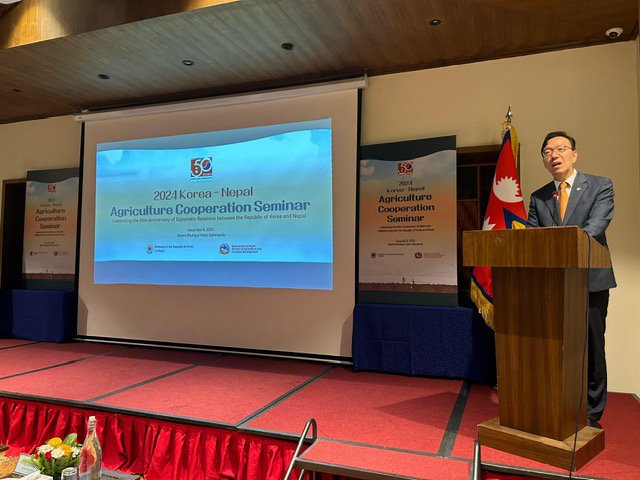
Over the past decades, agriculture has been a cornerstone of our cooperation, reflecting our shared commitment to the prosperity of rural communities and sustainable development. This year, to commemorate our 50 years of friendship, Korea has established a ‘Korea-Nepal Model Dairy village in Kamalamai Municipality, Sindhuli District and launched various ODA projects aimed at enhancing agricultural productivity and rural livelihoods.
Our collaboration has been further strengthened by the active engagement of organizations like KOICA, which has worked closely with the Ministry of Agriculture and Livestock Development. Through initiatives such as increasing incomes in rural areas, developing value chain of fruit and vegetable, and supporting rural development, KOICA Nepal Office has been a vital partner in driving meaningful change.
Looking ahead, I am delighted to share that starting next year, we plan to initiate technical research and provide support through KOPIA (Korea Partnership for Innovation of Agriculture) project from Rural Development Administration of Korea to improve the productivity of rice and potatoes which are essential crops in Nepal. These two agencies—KOICA and KOPIA—will create synergies together and continue to be instrumental in our efforts to modernize agriculture, enhance food security, and uplift rural communities in Nepal.
The Government of the Republic of Korea is committed to deepening our agricultural partnership by sharing expertise, technology, and resources. Together, we can achieve our shared vision of resilient and sustainable agricultural systems, ensuring prosperity for generations to come.
As we gather here today to exchange ideas and explore new opportunities, let us reaffirm our dedication to strengthening agricultural cooperation. I am confident that this seminar will pave the way for innovative projects and stronger ties between our two countries.
Thank you once again for your participation and for your commitment to advancing our agricultural partnership. May our efforts today bring fruitful outcomes for the benefit of our people and our countries.
- National Earthquake Safety Day Today
- Jan 15, 2025
- Yoga Day celebrated In Various Parts Of The Country
- Jan 15, 2025
- Weather Forecast: Partly Cloudy In Hilly Some Regions of Gandaki, Bagmati and Koshi and Mainly Fair In The Rest
- Jan 15, 2025
- Foreign Minister Dr Rana Requested Qatar's Minister To Support To Release Bipin Joshi
- Jan 14, 2025
- Tharu Community Celebrates Maghi
- Jan 14, 2025
